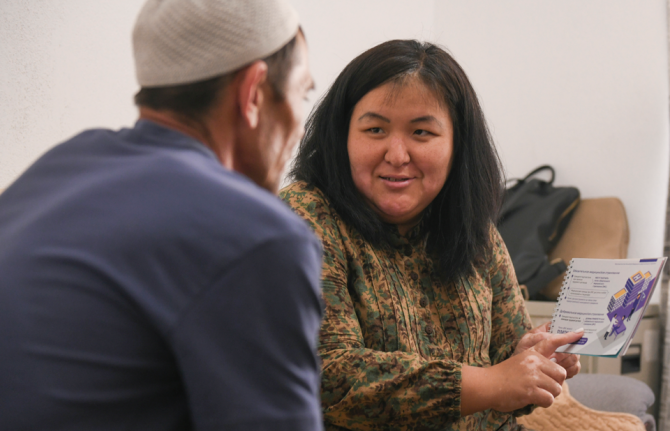
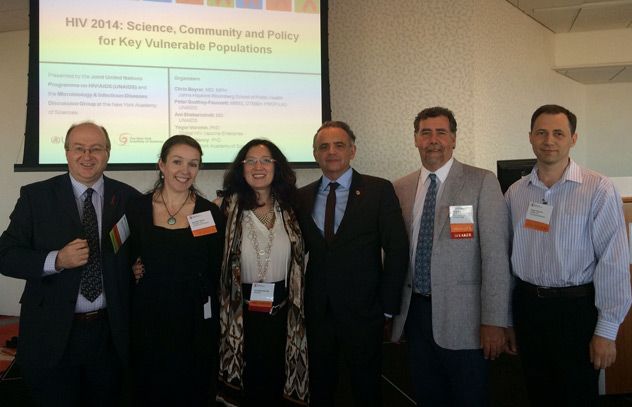
L to R: Peter Godfrey-Faussett, UNAIDS science adviser, Jennifer Henry, The New York Academy of Sciences, Ani Shakarishvili, UNAIDS technical adviser, Luiz Loures UNAIDS Deputy Executive Director, Chris Beyrer, Johns Hopkins Bloomberg School of Public Health, Yegor Voronin, Global HIV Vaccine Enterprise. Credit: UNAIDS

Mark Harrington, Treatment Action Group, Arne Näveke, International AIDS Vaccine Initiative, Ani Shakarishvili, UNAIDS, Mitchell Warren, AIDS Vaccine Advocacy Coalition (AVAC). Credit: UNAIDS
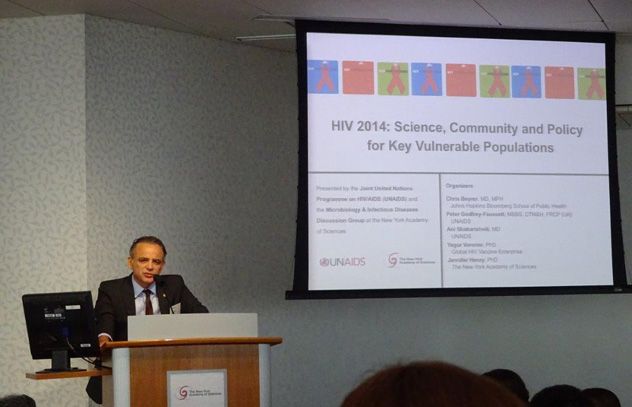
Luiz Loures, UNAIDS Deputy Executive Director and Assistant Secretary-General of the United Nations, delivering the opening remarks at the symposium HIV 2014: Science, Community and Policy for Key Vulnerable Populations.

Chris Beyrer from the Johns Hopkins Bloomberg School of Public Health delivering a keynote address titled New methods, new estimates for men who have sex with men in the World.
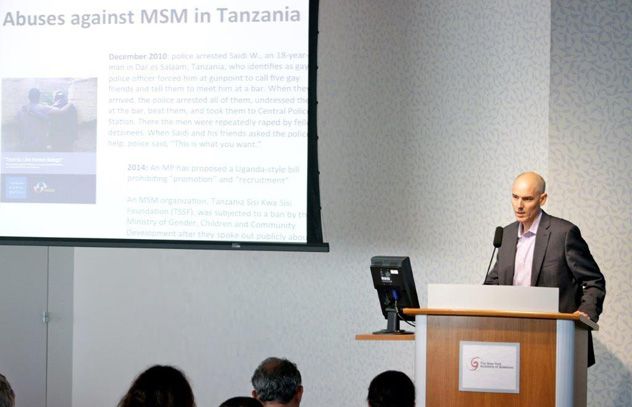
Joe Amon from Human Rights Watch speaking on the political epidemiology of HIV and access to science for key populations.
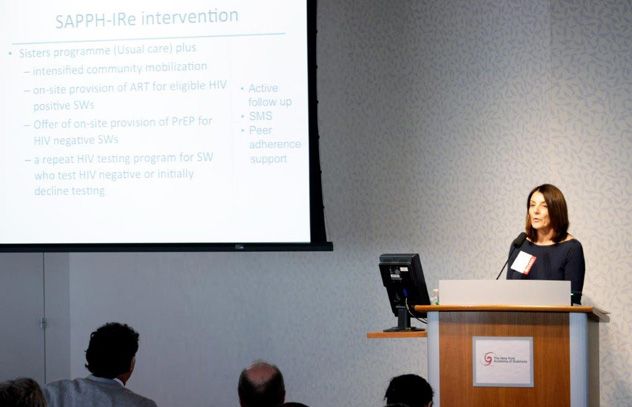
Frances M. Cowan from the Centre for Sexual Health and HIV/AIDS Research describing the SAPPH-IRe Trial – ART for HIV prevention among female sex workers in Zimbabwe.
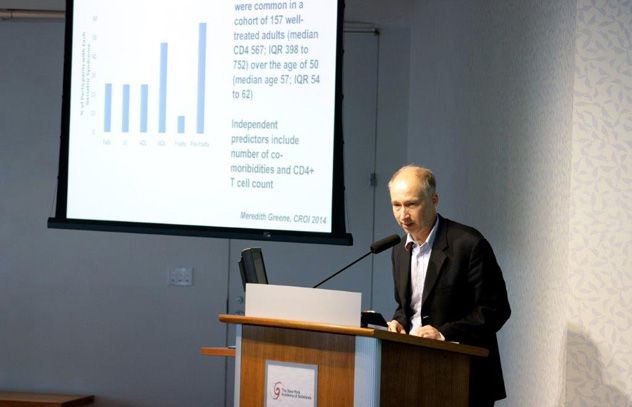
Steven G. Deeks from the University of California, San Francisco (UCSF) speaking on the critical emerging science on HIV and aging in men who have sex with men.
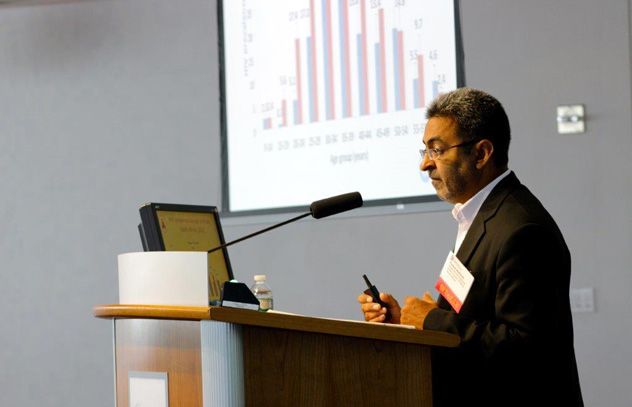
Fareed Abdullah from the South African National AIDS Council describing the scale up of HIV programmes for key populations in South Africa.
Debrief
How to ensure that the benefits of recent scientific advances reach key populations
07 May 2014
07 May 2014 07 May 2014Stigma and discrimination, human rights abuses and challenging legal environments can prevent members of key populations at higher risk—such as men who have sex with men, people who use drugs and sex workers—from realizing the benefits of recent advances in science. UNAIDS and the New York Academy of Sciences therefore held a symposium in New York on 5 May to explore the links between science, community and policy in order to improve access to HIV services for key populations at higher risk.
The participants recognized that key populations have been left behind by the advances made in science over the past few years. The challenge, they said, is to frame the political and structural agenda in such a way that the fruits of scientific discoveries can be shared with the whole of society.
According to the participants, solutions should be based on strong public health arguments and advocate for client-friendly services that improve access to services and not only reduce morbidity and mortality among the direct beneficiaries but also reduce onward transmission. Scientists are taking up the challenge of the special risks that key populations encounter, in terms of both the rapid spread of HIV infection—requiring new HIV prevention technologies—and in terms of comorbidities and the need for integrated HIV services.
Participants
The symposium brought together scientists, policy-makers and HIV service providers, advocates, and activists and community members from around the world.
Common messages discussed
- Community-led approaches offer ways to improve access to integrated services for most key populations.
- Providing access to HIV services to people in the very earliest stages of HIV infection may reduce the long-term consequences of inflammation and immune dysfunction.
- New HIV prevention technologies, such as pre-exposure prophylaxis, which may soon become available as a three-monthly injection, could provide an important addition to the HIV prevention package for men who have sex with men and for women at higher risk of HIV exposure, such as sex workers in high-prevalence countries.
- Coinfections and comorbidities are particularly relevant to many key populations and hence the advances in treatment for hepatitis C and approaches to manage tuberculosis in prisons, or sexual and reproductive health services for sex workers along trucking routes, are major steps forward.
Quotes
"With the knowledge we have today we could have the means to end the AIDS epidemic. But we will not achieve this if we leave people behind. Access to science for key populations and greater development of implementation science are key to the future of the AIDS response."
"We most urgently need to move forward with implementing those evidence-based programmes we know to be effective, and to do so without discrimination for those who need them most."


